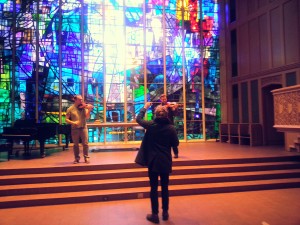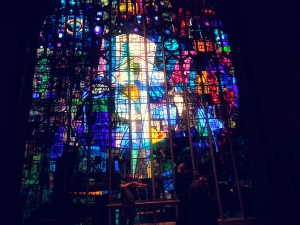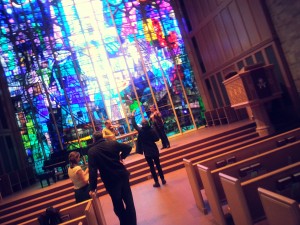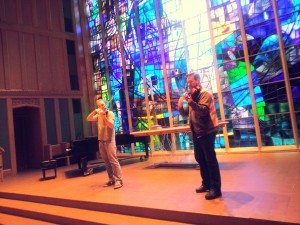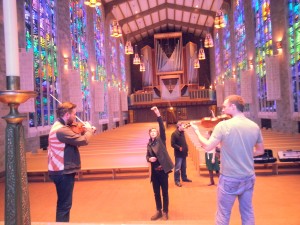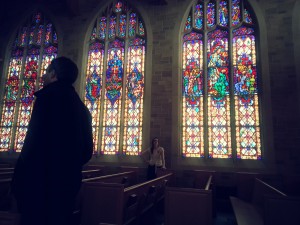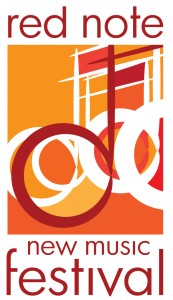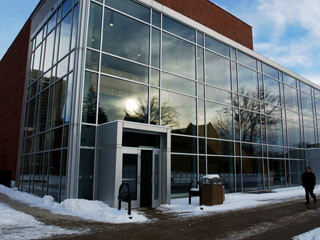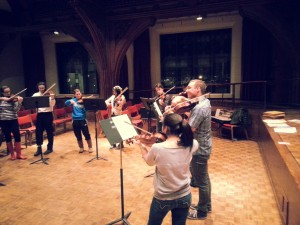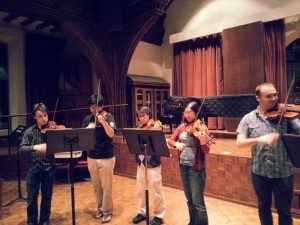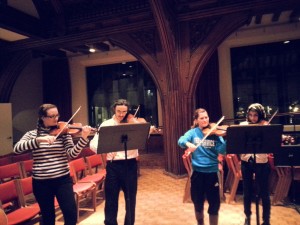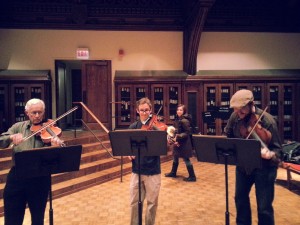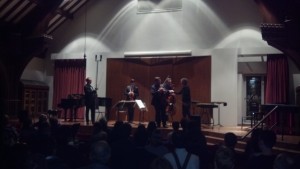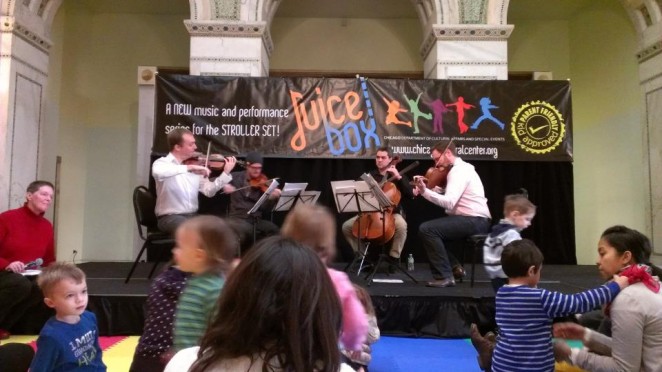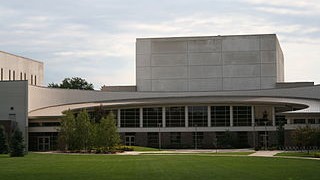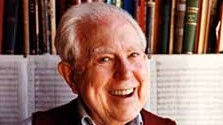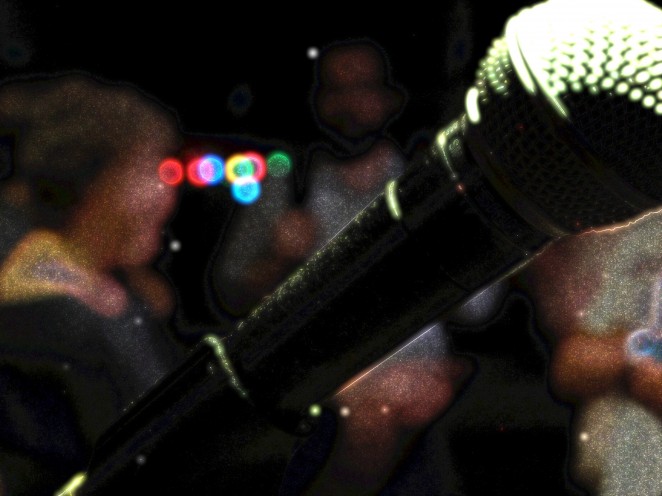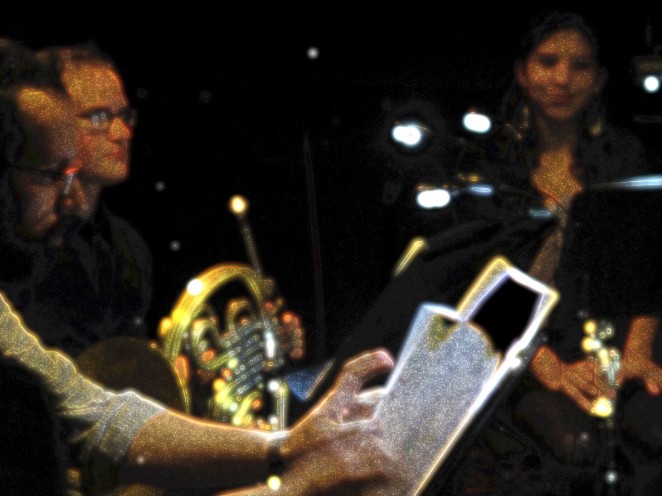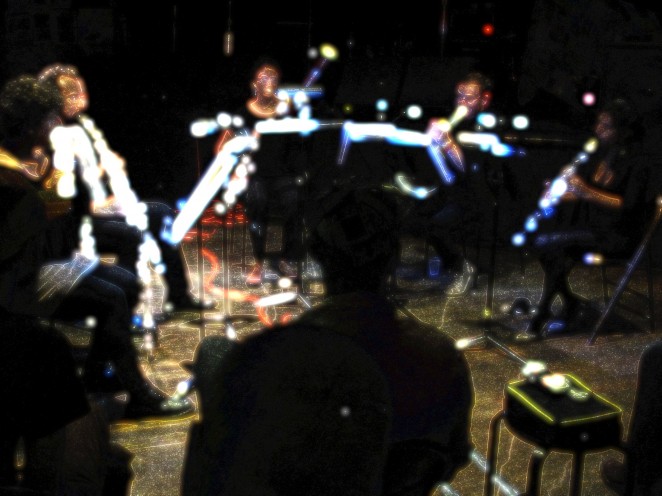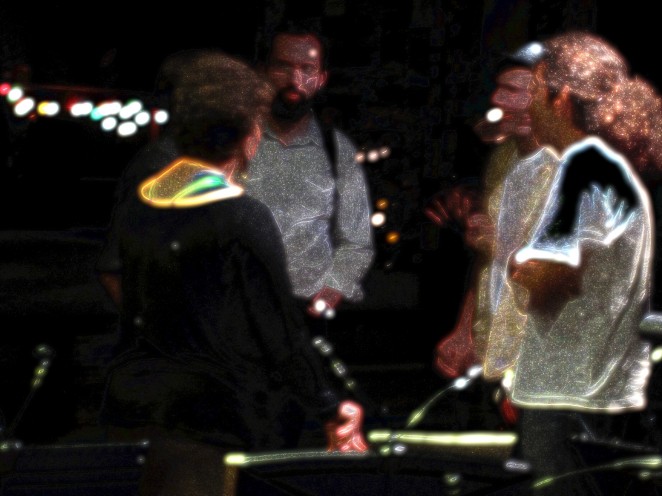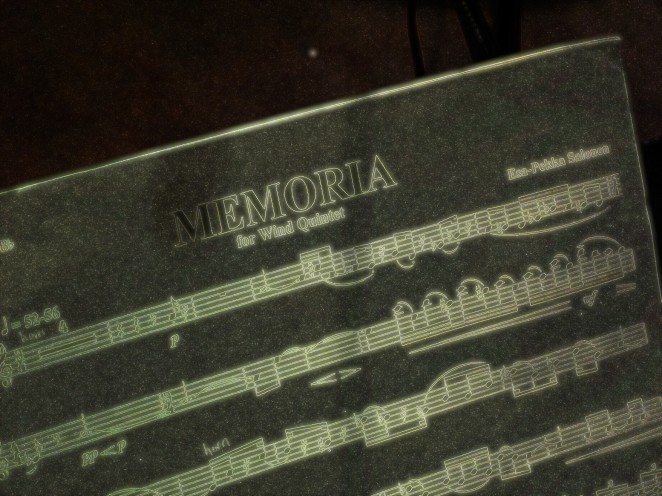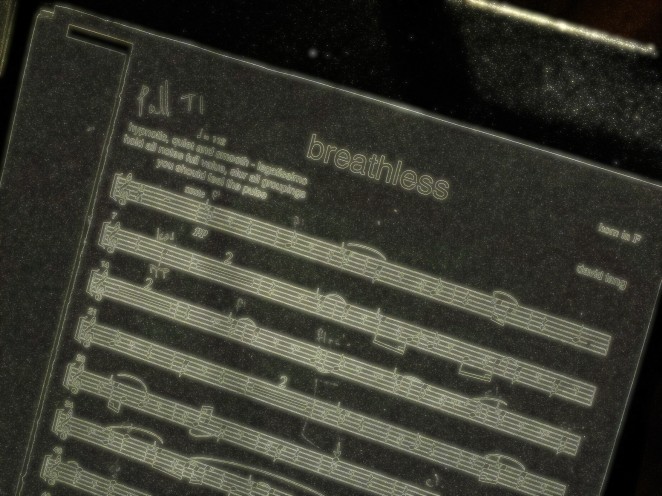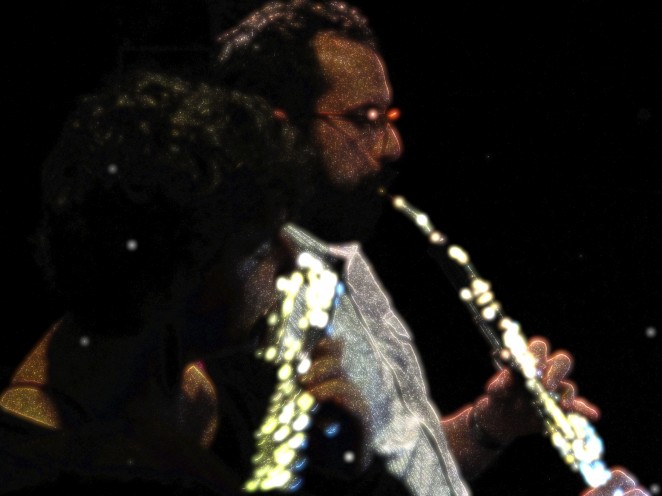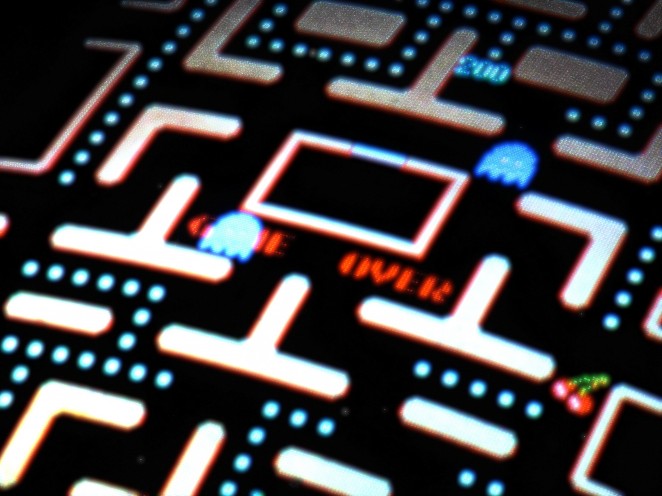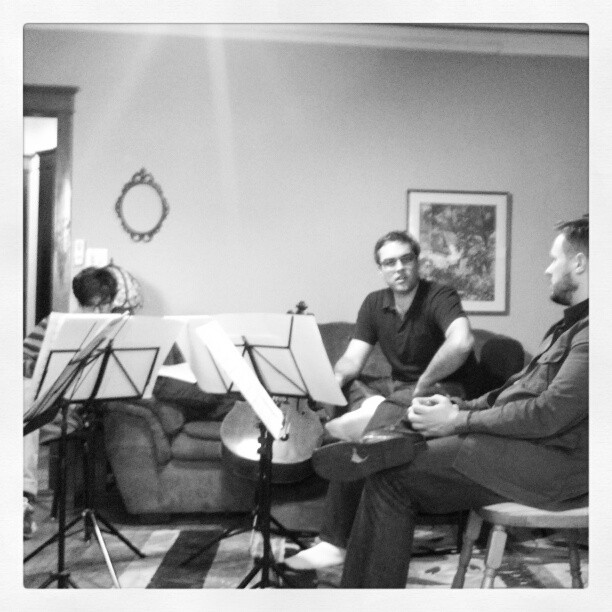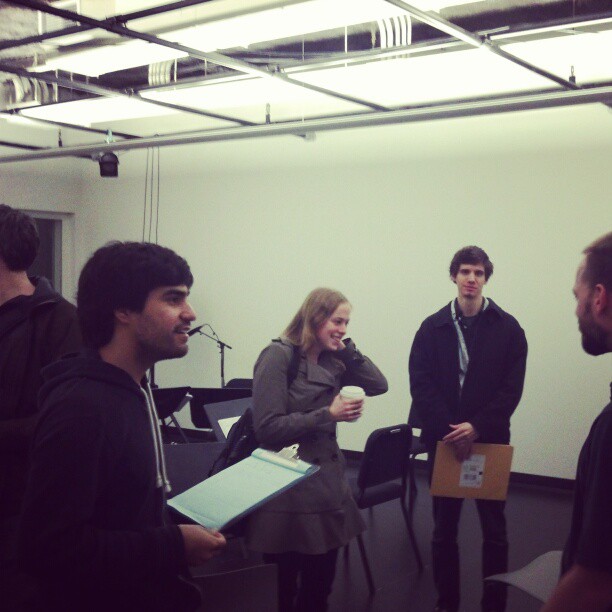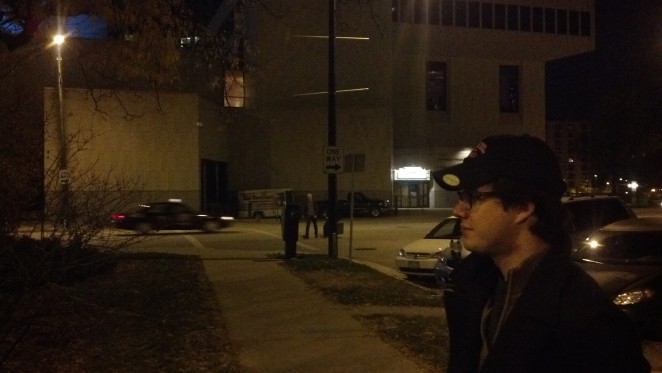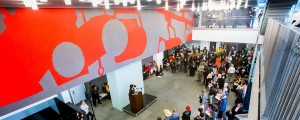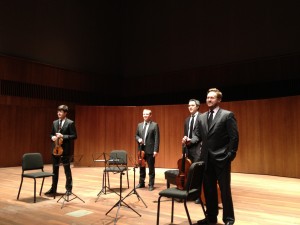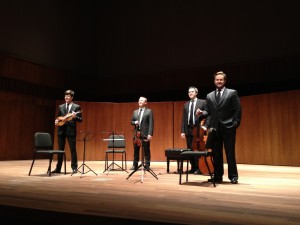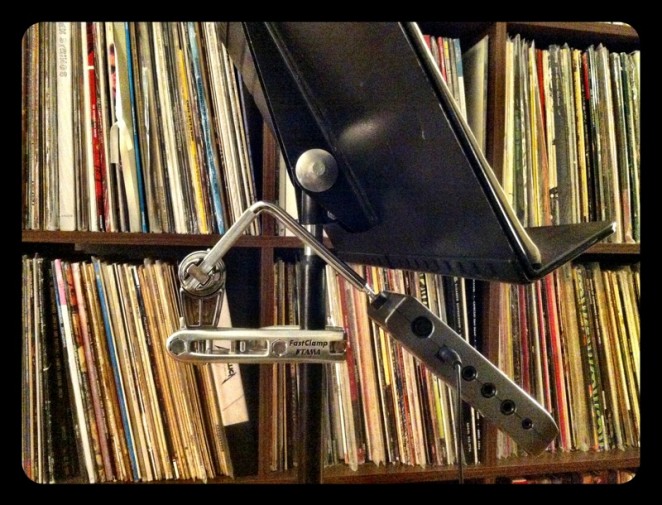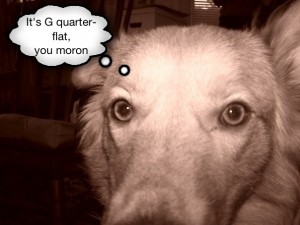The folks at Scrag Mountain Music have set the bar high for hospitality. Our week in Vermont wasn't just full of scenic beauty and wonderful people, but some of the best and freshest food we've ever had. Bacon and eggs from around the bend on the mountain never tasted better before a marathon rehearsal day! Mary Bonhag and Evan Premo, directors of the series, were extraordinarily gracious...especially since we had a third host, their two-month-old, Glen!
Here's the story of our week in photos.
Things started off a little slap-happy at O'Hare in the early morning Monday.

We got our stuff into our hosts' homes as the sun set over the Green Mountains.

Our second day there, we rehearsed all day...and then had another public session in the evening. Rehearsing in front of people really makes things more productive in an urgent way if you choose something early in the learning process! Stay tuned for more of these, Mary and Evan's idea of the "Very Open Rehearsal" is a great one.

Our plan of doing a different program each day, Friday through Sunday, meant some long rehearsal days. It wasn't always pretty. Here's Evan, helping us set up for the day with Glen in tow.

Doyle explains the finer point of "balancing to the viola line" to Russ.

And finally in action (fueled by some deliciously Vermont-roasted coffee).

A long day of rehearsal isn't complete without some brown liquid. We went to check out The Prohibition Pig and Aurelien got a taste of some of the local rye flavor made by Whistle Pig.

CUTE ANIMAL BREAK! Here's my new friend, Raven. She was pretty much the best.

Our run of three shows began Friday, we played a piece by Evan with him sitting in and Mary sang a piece by Earl Kim with us. The quartet played Ades' "Arcadiana", the Verdi Quartet and Chris Fisher-Lochhead's version of James Blake's "I Never Learnt to Share". The greeting party didn't bother to clean up for us. (Did you catch the theme of the week yet, as well?)


Saturday, things were a bit more refined for a church concert in Warren. The quartet played Mozart, K. 575 and Marcos Balter's "Chambers". Here's our warmup session with Mary on Earl Kim's "Three French Songs".

That night, it snowed. Vermont is special. I wish I'd taken my phone with me on my run into the countryside that morning. The pastures of cows with no humans to be seen for miles were incredibly beautiful. Here's the barn outside Evan and Mary's house.

Our final concert was in Montpelier, in a local theater. An incredibly open-minded crowd laughed with us as we gave a ten minute presentation and conversation about Carter's Second Quartet, as well as playing Wolf's "Italian Serenade" and repeating Chris' "I Never Learnt to Share" adaptation. Doyle had an intimate moment with his phone before the audience arrived.

Thanks for everything, Scrag Mountain folk and Vermont in general! One thing I won't miss: discussions of the pronunciation of "Montpelier" with Aurelien. It's really embarrassing for all of us when we start trying to pronounce French words.

